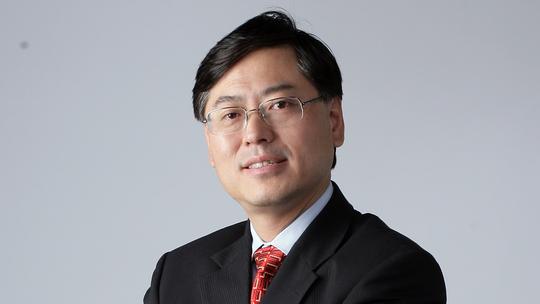
One of the Triangle’s largest technology employers is trying to make a name for itself in the metaverse.
Lenovo, which has its U.S. headquarters in Morrisville, envisions an increasingly virtual world where someday even factory workers can be a part of the “work-from-home” trend. At a media event in advance of the product announcements at Lenovo Tech World ’22, CEO Yuanqing Yang told reporters the Chinese firm’s commitment to innovation “remains unchanged.”
“At a time of uncertainty, technology provides a level of predictability,” Yang said.
And its priorities include the metaverse, enabling a future where someday “the environment you work in might be real or virtual." “Innovation is the ultimate force that drives humanity forward,” Yang said. “We believe in it. We invest in it.”
Luca Rossi, president of Lenovo’s intelligent devices group, said remote working trends from the pandemic have accelerated the need for a metaverse, which he calls “the next big thing.” Global workforces will likely remain distributed, and with the metaverse, that could mean factory workers, too, working from home.
Rossi said Lenovo is working with partners such as Microsoft (Nasdaq: MSFT) and Google (Nasdaq: GOOG) “to build an open metaverse that’s truly accessible so everyone can benefit from this new era.”
Yong Rui, chief technology officer, said that to Lenovo, “the metaverse is more than just a buzzword.”
He sees it as a place where “people and objects connect and interact with each other.” Lenovo envisions providing users immersive experiences that can solve industry challenges – and he sees opportunities for lower-cost solutions than what’s currently the norm today. Rui pointed to the electric power industry as one specific example, where inspecting power equipment is traditionally time consuming and risky.
“Human workers can also make mistakes,” he said.
But what if Lenovo can build a metaverse to connect the virtual and the physical – so that workers can conduct inspections without actually having to access hard-to-get-to equipment?
“To begin with … we need to build a virtual version of the physical power station, which we refer to as the metaspace,” he explained. He envisions workers being able to use “metaverse devices” such as special glasses and robots to map objects and locations. Technology would capture “realistic texture” details “to deliver an immersive, life-like virtual experience,” he said.
It’s a layered experience, and Lenovo is working to deploy it to create opportunities. He compares it to the film “Avatar,” where avatars could “reach locations that would be impossible for humans to get to.”
“The future is already here,” he said. “Lenovo would like to work with industry partners and take intelligent transformation to a new level with the new metaverse technologies,” he told reporters.
As it works on that future, however, it's doing so from an office, as Lenovo recently announced a hybrid approach that has its employees returning to its campuses for part of the week.


